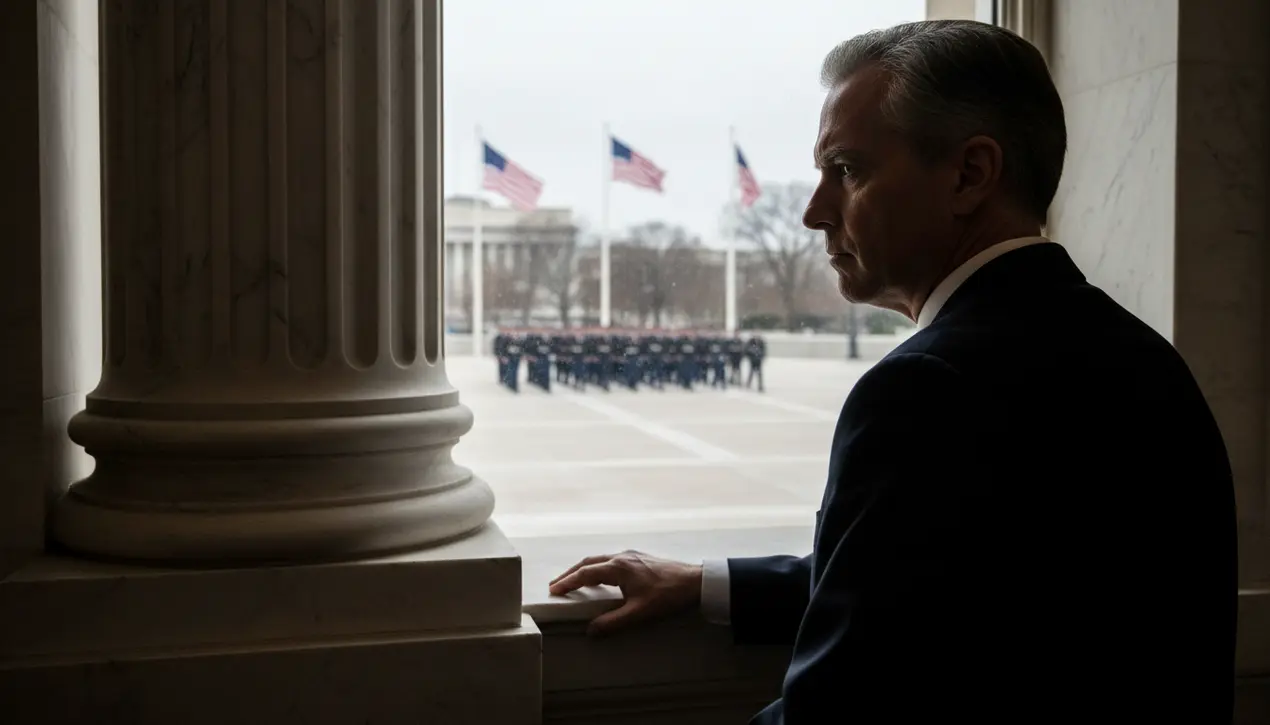
Politicsconflict & defenseMilitary Operations
Sen. Mark Kelly faces military probe after clash with Trump.
MA
Mark Johnson
1 day ago7 min read2 comments
The Pentagon's announcement of a military investigation into Democratic Senator Mark Kelly represents a dramatic escalation in the ongoing political warfare between the Trump administration and its congressional opponents, transforming what began as a rhetorical clash into a potentially career-ending legal confrontation. This probe targets a retired naval officer and astronaut who recently joined five other Democratic lawmakers—Senator Elissa Slotkin and Representatives Jason Crow, Chris Deluzio, Maggie Goodlander, and Chrissy Houlahan—in releasing a video explicitly urging military service members to disobey unlawful orders, a move that Defense Secretary Pete Hegseth immediately condemned as 'despicable, reckless, and false' while pointing to federal statutes that criminalize undermining military discipline with penalties reaching ten years imprisonment.President Trump's reaction was characteristically incendiary, demanding the legislators be 'ARRESTED and PUT ON TRIAL' before escalating to social media posts describing their actions as 'SEDITIOUS BEHAVIOR, punishable by DEATH,' rhetoric that prompted Senate Minority Leader Chuck Schumer to request special Capitol Police protection for Kelly and Slotkin while accusing Trump of encouraging political violence unprecedented in presidential history. Kelly's defiant response on X—'Your continued threats will not intimidate me or keep me from doing my job, which includes oversight of the executive branch'—frames this conflict as a constitutional showdown between legislative oversight and executive authority, though the Pentagon's carefully worded statement emphasizing the 'legal obligation' to 'obey lawful orders' suggests the investigation may focus narrowly on whether the senators violated specific military regulations regarding insubordination rather than broader sedition charges.This confrontation echoes historical tensions between commanders-in-chief and military veterans in Congress, from Theodore Roosevelt's criticism of Woodrow Wilson's preparedness policies to John McCain's clashes with executive authority, though the direct targeting of sitting senators with military investigations represents uncharted territory in civil-military relations. The White House's attempted walkback through press secretary Karoline Leavitt—claiming Trump's execution threats weren't meant literally—does little to defuse a situation that legal experts warn could establish dangerous precedents for using military justice systems against political opponents, particularly given Kelly's unique status as both senator and retired naval officer subject to military jurisdiction.Behind the dramatic headlines lies a strategic calculation from both sides: for Trump, emphasizing Democratic 'sedition' reinforces his law-and-order messaging to base voters, while for Democrats, standing with uniformed personnel against potential authoritarian overreach plays to their strength on institutional defense, though the political stakes skyrocket if the investigation produces actual charges against a sitting senator. The timing proves particularly explosive, coming amid ongoing debates about military politicization and following recent controversies over presidential authority during national emergencies, with this case potentially testing the limits of the Uniform Code of Military Justice's applicability to retired personnel engaged in political speech. As the Pentagon proceeds with its investigation—reportedly initiated after Trump publicly suggested the Defense Department was examining the lawmakers—the outcome will likely hinge on complex legal interpretations of what constitutes 'urging insubordination' versus legitimate political speech about military ethics, a distinction that could redefine the boundaries between civilian oversight and military discipline for generations.
#Pentagon investigation
#Mark Kelly
#Trump confrontation
#military discipline
#unlawful orders
#featured
Stay Informed. Act Smarter.
Get weekly highlights, major headlines, and expert insights — then put your knowledge to work in our live prediction markets.
Comments
Loading comments...
© 2025 Outpoll Service LTD. All rights reserved.